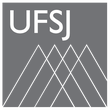Banca de QUALIFICAÇÃO: POLYANNA ABREU CORRÊA TAVARES
Uma banca de QUALIFICAÇÃO de MESTRADO foi cadastrada pelo programa.STUDENT : POLYANNA ABREU CORRÊA TAVARES
DATE: 30/05/2022
TIME: 18:00
LOCAL: Sala virtual através do link https: // meet.google.com/bnr-yaik-ten
TITLE:
ORGANIC MATTER AND STABILITY OF AGGREGATES IN EUCALYPTUS PASTURE INTEGRATION SYSTEMS SUBMITTED TO DIFFERENT TECHNOLOGICAL MANAGEMENT LEVELS
KEY WORDS:
Soil; soil physics; pasture; organic matter; aggregates;integration system
PAGES: 35
BIG AREA: Ciências Agrárias
AREA: Agronomia
SUBÁREA: Ciência do Solo
SPECIALTY: Manejo e Conservação do Solo
SUMMARY:
Different soil use and management practices can significantly affect soil attributes, especially physical ones. In this sense, it is necessary to develop management strategies that promote improvements in the physical quality of the soil, in order to favor the growth and development of crops, increasing their efficiency and consequent productive growth. An area of 44 hectares was divided into four paddocks of 11 hectares each, where four different levels of fertilization management and integration of agricultural components were established: level one, level two, level three and level four, with one level for each paddock, compared to an adjacent cerrado control area. Technological levels progress according to technology, investment in soil improvement and establishment of more intensive systems, ranging from investments in fertility to the adoption of more advanced production technologies. Soil sampling was performed at two different depths (0-10 and 10-20cm) for physical and organic matter characterization of the soil. The aggregation indices determined were: the weighted mean diameter (DMP), the geometric mean diameter (DMG) and the aggregate stability index (IEA). The material was collected only once at the end of 2020, after three years of experiment establishment. The soil quality index (SQI) was evaluated with a principal component analysis (PCA) to compare soil quality classes between selected sites. Level three tends to have greater positive interference in the 0-10 cm layer for organic matter accumulation. The results indicate that depth, organic matter and fertilization were the most important indicators of soil quality, reflecting on the general quality of the soil. Based on the values obtained, level three is the most appropriate management of the ILPF in this context, since it preserves soil quality at a lower cost than technological level four. It is worth noting that even after three years of evaluation, more studies need to be carried out in order to carry out a more accurate monitoring over time, especially in relation to the stability of soil aggregates.
BANKING MEMBERS:
Interna - 3125822 - ALINE DE ALMEIDA VASCONCELOS
Presidente - 2415356 - ANDRE THOMAZINI
Externo ao Programa - 1894551 - SAMUEL PETRACCONE CAIXETA



